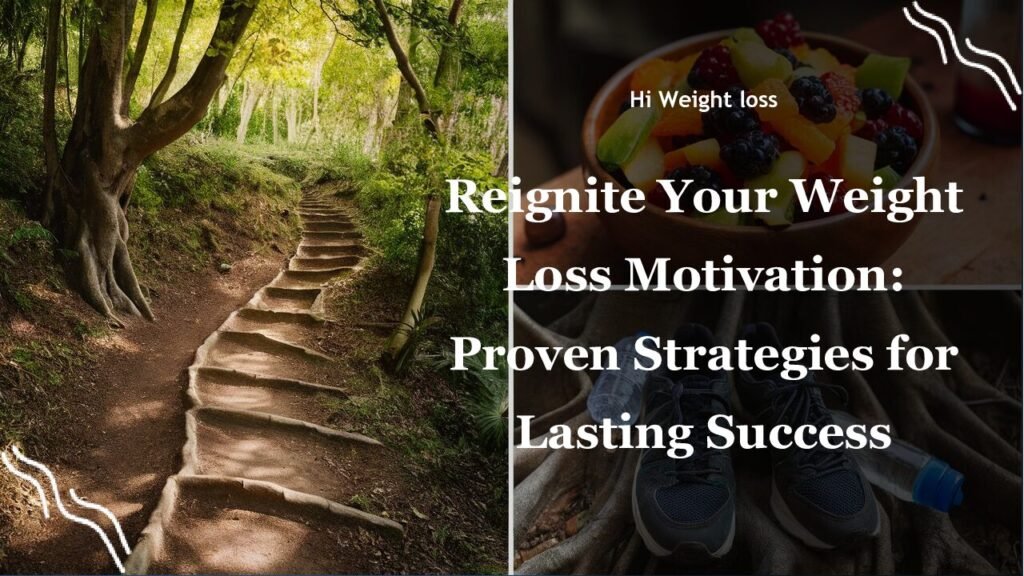“`
Is someone you care about struggling to find the motivation to lose weight? It’s a common challenge, and often, the harder we push, the more resistance we encounter, it can be frustrating watching someone you care about struggle. But the truth is, sustainable weight loss is rooted in internal drive, not external pressure. This article will guide you through practical strategies for how to motivate a person to lose weight, focusing on understanding their reasons, setting realistic goals, and creating a positive support system.
How to Motivate a Person to Lose Weight
Uncovering the “Why”: Identifying Intrinsic Motivations
Before diving into action plans, it’s crucial to understand what truly drives a person. Is it health concerns, a desire for increased energy, or simply feeling more comfortable in their own skin? These are *intrinsic motivations*, and they are far more powerful than *extrinsic motivators*, like wanting to fit into a certain dress size or external pressure. As Tony Robbins notes, tapping into a person’s deepest “why” is key to unlocking lasting change.
My friend Sarah, for instance, had been trying to lose weight on and off for years. Nothing seemed to stick. It wasn’t until she experienced severe pain while playing with her kids that her real motivation clicked; she wanted to be active with her children and be there for them long-term. That shift in perspective – focusing on her ability to be a present mother – gave her the lasting motivation she had previously struggled to find.
Small Steps, Big Impact: Setting Realistic Goals
Let’s face it: the prospect of losing a large amount of weight can be overwhelming and demotivating. Instead of focusing on a distant target, encourage setting small, achievable goals. According to Healthline, aiming for 9 to 18 pounds for someone weighing 180 pounds, or 13 to 25 pounds for someone who weighs 250 pounds, is a great start.
Think of it like climbing a staircase, not a mountain. Each small step forward builds confidence and momentum. Celebrate these wins, no matter how seemingly insignificant they might be. Remember, consistency trumps intensity. Setting *realistic goals* ensures a smoother journey to success.
Customizing the Journey: Creating a Personalized Plan
There’s no one-size-fits-all approach to weight loss. What works for one person might not work for another. It’s important to ditch the notion of strict diets that eliminate entire food groups. These often lead to *yo-yo dieting* and decreased motivation. Instead, the focus should be on creating a sustainable plan tailored to individual needs and preferences. Encourage incorporating more fruits and vegetables, reducing calorie intake, paying attention to portion sizes, and minimizing ultra-processed foods, as Healthline suggests.
My brother, for instance, hates the idea of following a strict diet plan. Instead, we focused on making small swaps – choosing a whole-wheat option instead of white bread, adding an extra serving of veggies at dinner, and gradually reducing his soda intake. The flexibility helped him stay motivated without feeling deprived. It’s about embracing progress, not perfection. Remember that it is important to find a *weight loss plan that fits your lifestyle*.
Move Your Body, Lift Your Spirits: Finding Enjoyable Exercise
Exercise shouldn’t feel like a chore. It’s important to find physical activities that are actually enjoyable! It could be dancing, hiking, swimming, cycling, or even walking a dog. The key is to make movement a fun and rewarding part of daily life. Exercise not only burns calories but also has a significant impact on mood and energy levels. Tony Robbins emphasizes the importance of linking exercise with positive emotions.
I recall a friend who initially dreaded exercise. She tried a variety of workouts, but nothing seemed to stick until she discovered Zumba. The music and the social aspect made it feel like a party, not a workout! She was surprised at how excited she was to go to the gym, and this is a perfect example of how finding *enjoyable exercise* is essential for lasting success.

The Power of Mindset: Positive Thinking and Self-Monitoring
Our thoughts have a huge impact on our actions. Practicing *positive thinking* by making positive statements about commitment to behavioral changes is powerful. Instead of focusing on what you *can’t* eat, focus on the healthy choices you *are* making. Also, self-monitoring, such as keeping a food journal, can be incredibly beneficial, as Mindful Eating explains. It helps identify patterns and understand eating habits.
When I started tracking my food, I was shocked to see how many mindless snacks I was consuming! The self-awareness was the first step towards making healthier choices. Remember, weight loss is as much a mental game as it is a physical one, therefore, keeping a *food journal* and practicing positive self-talk can help you stay on track.
Strength in Numbers: Seeking Social Support
Sharing your weight loss goals with loved ones can make a huge difference. Consider finding a weight loss buddy – someone who’s on a similar journey. This provides accountability, encouragement, and a sense of camaraderie, according to Healthline. Having a *weight loss buddy* can help you celebrate your successes together, and support each other through challenges.
My neighbor, for example, started walking with her friend every morning. The fact that they were accountable to each other helped them stay consistent, and they’ve created a beautiful bond in the process.
Celebrate Every Step: Recognizing Successes
Don’t wait for the end goal to celebrate. Acknowledge every success, no matter how small. Did you skip a sugary drink? Did you manage to walk an extra 10 minutes? These are victories worth celebrating! This approach reinforces positive behaviors and keeps motivation high.
I’ve found that rewarding myself with something non-food-related like a new book or some time relaxing in a bath has been more effective than associating my efforts with unhealthy treats. It’s about making a positive connection to your achievements.
When to Seek Guidance: Professional Help
Sometimes, having professional support can be the missing piece of the puzzle. Consulting a registered dietitian or exercise physiologist can provide valuable guidance, accountability, and a better understanding of healthy eating and exercise. This isn’t a sign of weakness, but rather an act of self-care. They can provide customized plans that align with individual needs and preferences, and help you navigate any unique challenges you might encounter. According to Healthline, professional help can offer great benefits for sustained weight loss.
A colleague of mine worked with a dietitian who provided her with nutritional advice and helped her understand the science behind her body’s relationship to food. This professional insight drastically shifted her perspective and set her up for long-term success.
Bouncing Back: Building Resilience
Setbacks are a part of any journey. Understand that there will be days when you slip up, miss a workout, or give in to cravings. Don’t allow these moments to derail progress. Forgive yourself, learn from mistakes, and get right back on track. Building resilience is crucial for long-term weight loss success. As Tony Robbins explains, viewing failures as learning opportunities is key to building resilience.
I remember after a week of perfect eating, I had a whole bag of cookies. It was incredibly frustrating, but instead of letting it turn into a cycle, I recognized the slip, recommitted, and carried on with my goals. It’s about the overall direction, not perfection.
Nurture Your Relationship with Food: Mindful Eating
Instead of restricting foods, focus on *mindful eating* . This involves paying attention to hunger and satiety cues, savoring your meals, and making conscious choices about what you eat, as Mindful Eating suggests. This approach encourages feeling in charge of your food choices, and reduces the likelihood of yo-yo dieting. When you are in tune with your body, you are more likely to make choices that nourish and support your well-being.
A friend of mine who has struggled with her weight told me she’s now focused on eating only when she is hungry and stopping when she is full. She’s now enjoying food without feeling like she’s constantly at battle with it.
Summary of Strategies: A Table of Tips
Here’s a summary table to recap the strategies we’ve discussed for motivating a person to lose weight:
| Strategy | Description |
|---|---|
| Identify Intrinsic Motivations | Understand their personal “why” for losing weight. |
| Set Realistic Goals | Start with small, achievable weight loss targets. |
| Create a Custom Plan | Focus on a sustainable lifestyle change, not strict diets. |
| Find Enjoyable Exercise | Engage in physical activities they love. |
| Use Positive Thinking and Self-Monitoring | Practice positive self-talk and keep a food journal. |
| Seek Social Support | Share their goals and find a weight loss buddy. |
| Celebrate Successes | Acknowledge every small win along the way. |
| Get Professional Help | Consult a dietitian or exercise physiologist if needed. |
| Build Resilience | View setbacks as learning opportunities. |
| Improve Your Relationship with Food | Practice mindful eating, and be in tune with your body’s needs. |
Conclusion
Motivating someone to lose weight is about supporting them on their unique journey. It’s not about dictating a diet or enforcing strict exercise routines. It’s about understanding their “why,” setting realistic goals, creating a custom plan, finding enjoyable forms of physical activity, and supporting them through the ups and downs. By focusing on intrinsic motivations and building a supportive environment, you can help them develop sustainable habits. Remember, it’s a marathon, not a sprint. Like Sarah’s journey, focusing on a deeply personal reason can make all the difference. This article provides many useful tips to improve your life. Share this guide with someone who may benefit from this knowledge. Your encouragement can make a huge impact on their journey to better health!
FAQ
How can I identify someone’s intrinsic motivation for weight loss?
Ask open-ended questions about their reasons for wanting to lose weight. Listen actively and help them articulate the deeper, personal reasons behind their desire. It’s not about you, but about helping them discover the fuel that will drive them forward.
Is it better to focus on diet or exercise for weight loss motivation?
Both are important, but they should be approached in a balanced way. Encourage a combination of healthy eating habits and enjoyable physical activity that is sustainable for the individual. Focusing on what works for the person in front of you is the best approach.
What should I do if the person I’m trying to motivate experiences a setback?
Reassure them that setbacks are a normal part of the process. Encourage them to learn from the experience, and focus on the overall journey towards improved health. Be there to offer continued support and encouragement.
“`



